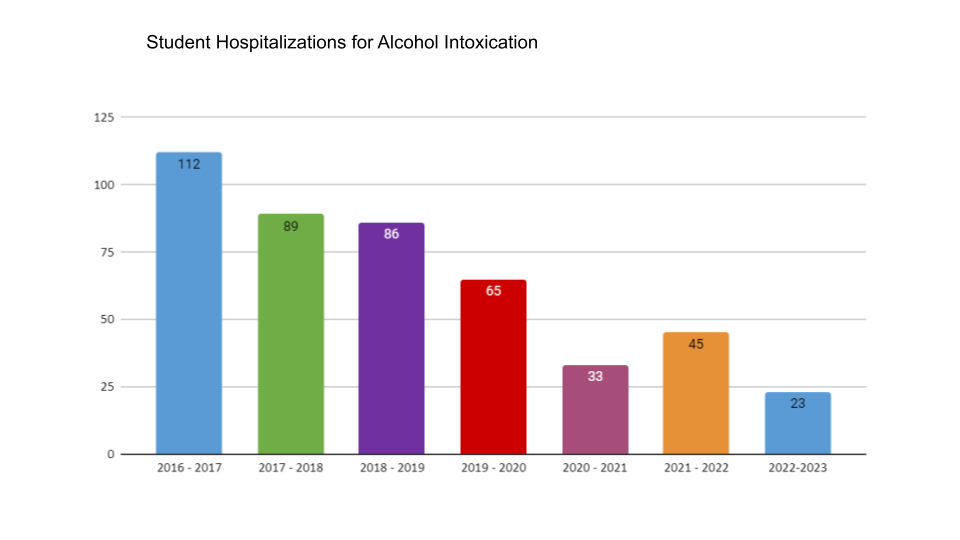What does your brand say about you?
The choices you make can impact you in a lot of ways. If you choose to drink, how can you prevent things from getting out of hand? The tips below can help you stay true to who you are and keep you and your friends safe.
How to party smarter 101
We have calculators that will help you calculate your alcohol limits based on who you are:
- Eat! Before and during drinking, get some food on board. Foods high in fats and proteins are best (burgers, pizza, tacos, fried chicken, etc.).
- Set a limit for yourself and stick to it.
- Pace and space your drinks. Your body can process ~1 standard drink per hour.
- Alternate with non-alcoholic drinks. Water is best.
- Know what you’re drinking. This means measuring your drinks and keeping control of them.
- Have a plan for how you’ll get home and stick with a group of friends.
- Avoid drinking games and shots. Drinking fast leads to more problems including blackout.
- Don’t ever mix medication and alcohol.
- Give a friend permission to tell you when you’ve had enough.
- Choose not to drink! Socializing and drinking don’t have to go hand-in-hand and over 1200 undergrad Deacs don’t drink at all!
Use the acronym CUPS to know when to call 9-1-1 for someone who has had too much to drink:
- C: Cold Skin – Alcohol affects the part of the brain that regulates body temperature, so someone who has consumed too much alcohol can feel cold and clammy to the touch and can have blueish or pale skin.
- U: Unresponsive – A person experiencing alcohol poisoning has consumed so much alcohol that their body can no longer function normally, so they may pass out and can’t be woken up by shaking them or calling their name
- P: Puking – Vomiting is the body’s way of getting rid of alcohol to avoid death or other serious consequences of drinking too much. However, alcohol poisoning can cause repeated, uncontrollable puking. Additionally, alcohol inhibits a person’s gag reflex, so alcohol poisoning increases a person’s risk of choking on or inhaling their own vomit.
- S: Slow Breathing – Alcohol also affects the part of the brain that regulates breathing, so someone experiencing alcohol poisoning can have slow, shallow or irregular breathing. If a person isn’t breathing enough, they aren’t getting enough oxygen to their brain or other vital organs. A breath about every five seconds is normal, anything slower than that is cause for concern.
Did you know? Wake keeps getting safer!

Wake Forest students work hard and play…safer? Yes, actually. In 6 years, our undergraduate students have gone from a rate of over a dozen hospitalizations for alcohol intoxication per month to fewer than a dozen per semester.
This positive progress is because Deacs are looking out for each other, making safer choices for themselves, and staying true to their brand!
